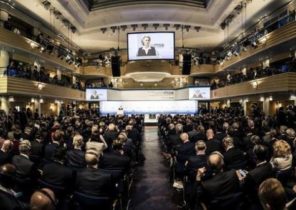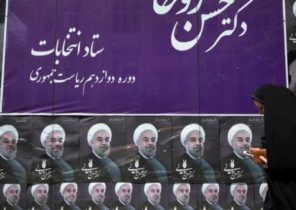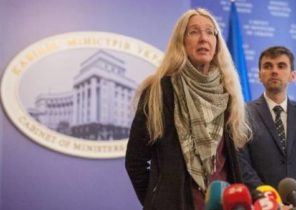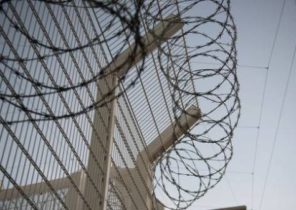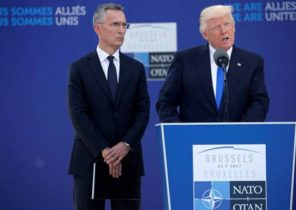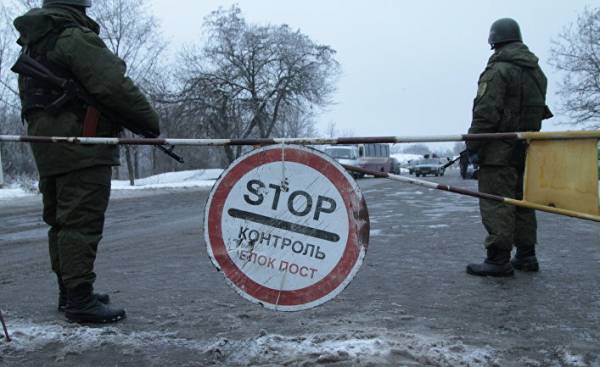
Blockade of Donbass has aggravated the internal political situation in Ukraine and showed a deep gap between different political groups as well as society and the political elite. Social tensions are caused not only by lack of a consistent policy of reintegration of the uncontrolled territories of Donbass. On the one hand, the current government is pursuing an aggressive rhetoric towards the resolution of the conflict in the East of the country and continues to practice non-transparent schemes in the energy sector. To resolve the issue of the blockade and prevent similar actions in the future, we need a dialogue between government and society, as well as the cessation of rent and corrupt practices in the economy.
January 25, 2017, the representatives of the nationalist forces, former military and members of the ATU, with the support of some of the independent deputies and members of the Samopomich faction, began a trade blockade of Donbass uncontrolled territories. As a result, was stopped shipment of anthracite coal, which runs the Ukrainian thermal power plants and metallurgical plants.
The rapid decrease of coal reserves led to the introduction by government of emergency measures on the electricity market, which provide energy savings for businesses and citizens. If by mid-March the government will not resume deliveries of coal, Ukraine can expect an energy crisis, and stop the heavy industry, at the enterprises where there are about 500 thousand workers.
The government said that the blockade of Donbass is illegal and that such actions are economic and energy threat to national security. Petro Poroshenko has noted that the government takes urgent measures to diversify supplies of coal, however, in the case of continuation of the blockade the government will be forced to use power tools for unlocking the transport and Railways.
Blockade of Donbass was one of the main political issues around which continued extremely sharp public debate. The sharpness of debate and the public reaction to the blockade was a natural result of aggressive rhetoric, which adheres to the country’s leadership for the last time, as well as lack of clear state policies to resolve the conflict and reintegration ORDO.
The blockade and its consequences for energy and economic security of the country also showed that despite verbal statements by the political leadership, has not been found alternative energy resources from conflict zones and industrial complexes on the territory operate within a single production chain with firms that are on an uncontrolled territory. Moreover, attempts to break such ties in a number of circumstances are likely to have negative consequences for both parties and above all for the citizens of Ukraine.
However, despite calls for energy security, the greatest threat to the country bears to use force to unblock. Power structures are ready to unlock, the decision to date not taken, probably, given the burst of public activity for the period of honoring the memory of fallen heroes hundreds of Heaven.
TV picture of security forces beating activists blockade can cause an explosion of public indignation and lead to unpredictable consequences. That is why the authorities are now actively finding ways to avoid the military scenario. Using midiinstrument ongoing campaign to discredit the organizers of the blockade, accuse them of undermining the economic sovereignty.
Still not clear who is behind the organizers of the block. The participants explain their actions exclusively by Patriotic motives. However, the level of organization, media and political support indicates that there are political players who are interested in the blockade.
In expert circles is very common is the thesis that the blockade is the pressure of Igor Kolomoysky on the business Akhmetov’s group, with whom the Dnepropetrovsk oligarch there is an ancient corporate confrontation.
Some experts believe that the blockade is due to the internal contradictions in the Opposition bloc and is the pressure of one group of “shareholders”.
In the media and among deputies there is also a version that the blockade is interested and personally Akhmetov, who is not satisfied with the current business income at the junction of the controlled and uncontrolled territories.
There is also a hypothesis about the interest of the Russian Federation in the use of social discord as an element of a hybrid war against Ukraine. Pulling attention from the events on the boundary line and a shift in focus to domestic issues, the game is on the contradictions within society significantly weakens the position of Kiev and creates the preconditions for further political divisions within the country.
Whoever was behind the blockade, a group of deputies of the organizers and parties that support them, have already received a positive from the growth of electoral support with regard to their criticism of the authorities for inaction and trade with ORDO.
It is possible to predict a lull in the issue of the embargo before the end of February, but in March, in the absence of changes in the locking process, the application of heavy-handed unblocking of railway communication with ORDA that will cause excitement and conviction among part of the society.
What conclusions can be drawn from the history around the block of Donbass?
1. Power, especially the President, should finally determine in real and practical ways of resolving the conflict in Eastern Ukraine.
2. Need a public dialogue and government communication regarding settlement of the conflict and reintegration of the country. Replacement dialogue for aggressive rhetoric, “witch hunt”, the rejection of even the idea compromise creates a trap into which the government drives itself.
3. It is necessary to introduce reforms in the energy sector, which will allow to demonopolize and liberalize the energy market, to ensure access to the maximum number of players for the production of energy, generation and sales to the ultimate consumer.
Only these steps will allow to avoid repetition of such blocking of certain territories in the future. Their absence will further provoke those or other political or social groups the same use of force.



